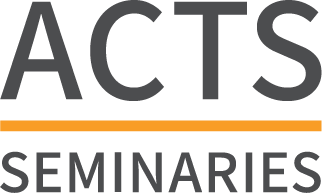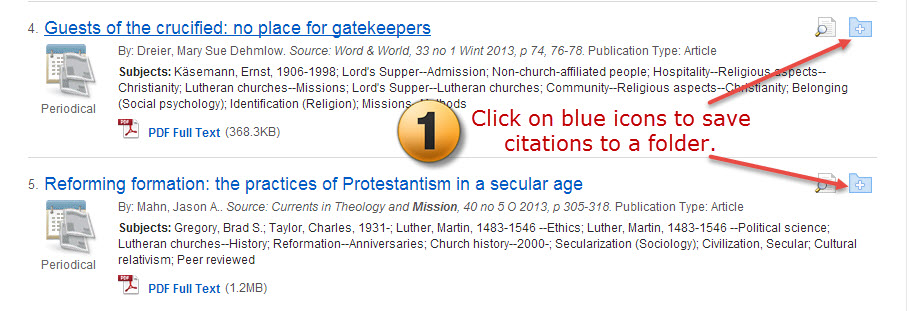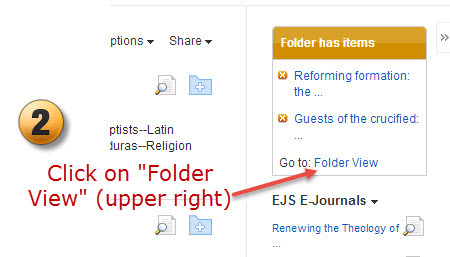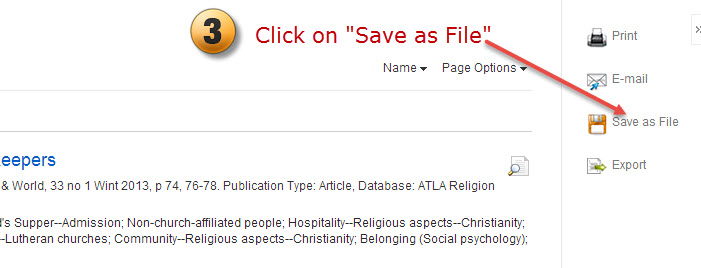

https://libguides.twu.ca/RES502
RES 502 Online - Research Strategies
A GRADUATE LEVEL INTERACTIVE COURSE IN INFORMATION RESEARCH SKILLS
prepared by William Badke
ASSIGNMENT THREE
Introduction to Journals and Article Citations
Research for articles in journals can be challenging. So why bother with journal articles at all?
- Because they often have cutting edge material
- Because they are often very specific to particular issues
- Because they are short and thus easier to handle than books
- Because most scholarly articles are available only through such databases (not through Google)
- Because professors see the value of journal articles and often dock student papers that ignore this resource.
Article Citations
There are minimum requirements to identify a journal article in Turabian Notes/Bibliography or APA format. Here are two sample citations:
Turabian Humanities (sometimes called Notes or Bibliography)
Nicholson, Amanda, Richard Rose, and Martin Bobak. "Associations between Different Dimensions of Religious Involvement and
Self-rated Health in Diverse European Populations." Health Psychology 29, no. 2 (March 2010): 227-235.[If your citation looks like the example in light blue, below, you have the wrong Turabian format (Reference List or Author-Date format):
Nicholson, Amanda, Richard Rose, and Martin Bobak. 2010. "Associations between different dimensions of religious involvement and self-rated health in diverse European populations." Health Psychology 29, no. 2 (March): 227-235. [The date needs to be at the end of the citation, not right after the author, if you are using the Turabian Notes/Bibliography format.]
APA
Nicholson, A., Rose, R., & Bobak, M. (2010). Associations between different dimensions of religious involvement and self-rated health in diverse European populations. Health Psychology, 29(2), 227-235. doi:10.1037/a0018036.
[This is a citation for an article with a DOI. If there is no DOI, use the Internet home page URL for the journal involved].
A Short Introduction to Relevant Databases for Seminary Student Research
The most basic tool for searching for articles is Library OneSearch, accessible from the library home page (http://www.twu.ca/library/). This tool covers all the journal article content to which TWU subscribes.
Be sure you consult the extensive tutorial on Library OneSearch available at http://libguides.twu.ca/LibraryOneSearch.
We have individual databases as well. These may be more focused on the subject area you are dealing with. Access them through the Databases link in the main search box on the library home page - https://www.twu.ca/library/ - or lower on the library home page through the Articles link.
Some useful databases for seminary studies:
ATLA Religion Database with ATLASerials - A helpful tutorial is located at: https://vimeo.com/160815488/62fbc92114. Please be sure to view it.
JSTOR has updated its citation and export features since the above tutorial. You can access both citations and export to a bibliographic manager through the Cite this Item link to the right of a citation, or export a group of citations to a bibliographic managerr by clicking the boxes next to the citations you want and using the export link:

Old Testament Abstracts / New Testament Abstracts
PsycINFO (Tutorial at https://vimeo.com/162139512/9688350153)
PsycARTICLES (This database is actually included in PsycINFO, and searches exactly like PsycINFO above, though you can search it separately See the PsycINFO tutorial for directions on use)
PsycBOOKS (This database searches similarly to PsycINFO
above. See the PsycBOOKS tutorial for directions
on use.)
EBSCO Academic Search Complete (Tutorial for Academic Search Complete)
Be sure to review the Textbook material in Chapters Four and Five on searching with keywords and controlled vocabularies in preparation
for this assignment, in addition to Chapter Six on journal database searching.
To access journal databases by subject discipline, go to the library home page and click on the Articles tab at the top of the screen.
For information on downloading journal article citations to EndNote, see the EndNote guide at http://libguides.twu.ca/EndNote/.
Creating correctly formatted journal articles - The choices
1. Use Endnote Basic/Web.
2. Use Citation Machine (http://www.citationmachine.net/) or KnightCite (http://webapps.calvin.edu/knightcite/index.php).
3. Look up the article title in Google Scholar and use the quotation marks icon under the resulting citation (can be unreliable).
4. For the library's main search box and all individual EBSCO databases, below is a guide to creating automatic citations:

![]()

![]()

![]()

![]()

![]()

Read Research Strategies, Chapter Six, Sections 6.2-6.9, and review Chapters 4 and 5.

For each of your topics:
A. State your research question.
B. Do a search relevant to your question using the Library OneSearch tool (library home page, main search box, choose the "Articles" option).
Unless you get fewer than 20 results, limit your topic by choosing one or more subjects from the column to the left of results. Grades will be deducted if subject heading searching is possible but was not used:
List ten relevant journal articles (or essays from books) which you identified from your search, including author, title, journal name, volume and issue number, date, and page numbers, using proper Chicago/Turabian: Humanities format (not Chicago/Turabian: Author-Date) or APA format. APA should only be used for counselling or social scientific topics. Avoid book reviews or citations to full books. You will thus have a total of 20 article citations in your assignment, 10 for each topic [see the assignment template for clarification].
Remove the material after the page numbers that relates to the database in which you found the article. Thus,
Not:
Howard, Damian. "'Who Do You Say That I Am?': Christians and Muslims Disputing the Historical Jesus." Neotestamentica 49, no. 2 (2015): 297-320. New Testament Abstracts, EBSCOhost (accessed December 1, 2017).
But:
Howard, Damian. "'Who Do You Say That I Am?': Christians and Muslims Disputing the Historical Jesus." Neotestamentica 49, no. 2 (2015): 297-320.
All lists of citations need to be in alphabetical order by author.
C. Do searches in one of the library's individual databases (accessible through http://libguides.twu.ca/articles) for articles relevant to each your research questions. Be sure to pay attention to the Start With these Databases information, which will guide you to the best ones. You can use the same database for both of your topics or choose different ones. The key is to find the most relevant database for your research question.
Indicate:
1. The name of each journal database you used (Don't refer just to EBSCO, ProQuest, etc. which are company names. Instead, give the full title, e.g. EBSCO Academic Search Complete or EBSCO ATLA Religion Database). Make sure the databases you use are relevant to your topic.
2. The search terms you used, and the form of their combination (e.g. Oil AND Nigeria). Put the search terms in the exact form in which you used them, listing each on a separate line, e.g.
Oil and Nigeria, then narrowed by subject heading Petroleum industry.
Oil workers, then narrowed by subject heading Nigeria
Some Tips:
a. The "Start With these Databases" lists the best databases in order.
b. Do not, for this assignment, use freely available databases like Directory of Open Access Journals. Do not use Google Scholar. Use the commercial databases available through the TWU library website.
c. Make sure you choose terminology that is directly relevant to your research questions, and carefully screen your results to be sure that they are closely relevant to your research questions.
d. Remember that subject heading searches are required if available and your initial search gets more than 20 results. Indicate in your listing of subject headings used that they are actually subject headings, e.g. Evangelistic Work (Subject Heading).
For each database search done, list ten relevant journal articles (or essays from books) which you identified from your search, including author, title, journal name, volume and issue number, date, and page numbers, using proper Chicago/Turabian: Humanities format (not Chicago/Turabian: Author-Date) or APA format. APA should only be used for counselling, linguistis or other social scientific topics. Avoid book reviews or citations to full books. You will thus have a total of 20 article citations in your assignment, 10 for each topic [see the assignment template for clarification]. Articles may be the same in two lists on the same topic, though they may well be mostly different.
All lists of citations need to be in alphabetical order by author.
Some Tips:
1. You will be graded on wise choice of databases and search terms, and on how relevant the articles are to your research questions.
2. You are encourage to use EndNote Basic/Web to download your article citations whenever possible. You must put all citations into Turabian Notes or APA format (the latter only for counselling, linguistics, or other social scientific topics.)
3. There are two Turabian formats. You want the Humanities (sometimes called Notes or Bibliography) format, not the Author-Date format.
![]()
Rubric for Assignment Three. Highest grade meets these criteria:
Last updated: April 23, 2018